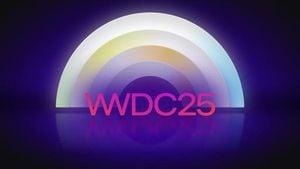On January 20, 2021, shortly after taking office, President Trump signed several executive orders fundamentally altering the federal government’s approach to gender identity and public health communications. Under his direction, the administration has enforced measures limiting recognition of gender diversity, creating significant repercussions for transgender individuals and public health research.
One of the most immediate actions taken was by Secretary of State Marco Rubio, who directed the State Department to suspend all passport applications seeking to change sex markers and those requesting the “X” gender marker altogether. This memo, reviewed by NBC News, cites Trump’s earlier executive order emphasizing the U.S. government’s recognition of only two sexes: male and female. Rubio’s memo states, “The executive order specifies government-issued identification documents...shall refer to an individual’s immutable biological classification as either male or female.”
Consequently, the State Department announced it would halt all processing of passport applications requesting changes to sex markers. “We no longer issue U.S. passports with X markers,” the department stated, outlining how any pending applications are now on hold until additional guidance is provided. This announcement has prompted anxiety among transgender citizens, particularly those with pending passport renewals.
A mother of a transgender son expressed her distress over the memo’s effects on her family, stating she felt "devastated" upon learning of the halt. She explained, “We put these forms in so everyone would have valid passports...but for our son’s application to be held feels not legal and terrifying.” Confusion and fear are rampant among families with transgender members as they navigate the new realities of official identification.
Meanwhile, the Centers for Disease Control and Prevention (CDC) received abrupt orders to pull back from publishing or considering scientific papers discussing topics related to gender identity. An email from the CDC’s chief science officer directed all division heads to withdraw any manuscripts authored by CDC scientists, underscoring this sweeping review aimed at purging references to terms such as “gender,” “transgender,” and “non-binary.” Experts warn this directive not only compromises scientific integrity but also jeopardizes public health initiatives aimed at vulnerable communities.
Dr. Alfredo Morabia, Editor in Chief of the American Journal of Public Health, remarked, “It’s incredible to think this is compatible with the First Amendment. A constitutional right has been canceled.” This sentiment was echoed by public health advocates, with Dr. Carlos Del Rio labeling the censorship as a “travesty” detrimental to significant scientific work.
These measures come against the backdrop of the COVID-19 pandemic, highlighting the urgent need for accurate public health communication. Critics posit these actions threaten the control necessary for addressing key health concerns across diverse populations. For example, Carl Schmid, Executive Director of the HIV+ Hepatitis Policy Institute, questioned how researchers and practitioners could effectively manage issues such as HIV and sexually transmitted diseases without language inclusive of all gender identities.
Public health researchers have also expressed alarm over the potential loss of data integrity. Jonathan Gilmore from Harvard T. H. Chan School of Public Health warned against the dangers of such data being undermined or erased altogether, remarking, “It’s dire. If we don’t have this data, it imperils our way of life.” The erasure of data and research findings – especially during public health crises – could detrimentally impact policies and programs meant to protect the population.
Significantly, the CDC halted the publication of its Morbidity and Mortality Weekly Report, breaking decades of tradition at the agency. This absence of data not only raises questions about transparency but also obscures the public’s access to key health metrics, particularly during heightened season for flu and other viral infections.
Further amplifying the concerns are ramifications across various federal agencies, as directives demanding the removal or alteration of terms like “gender” have led to the scrubbing of entire online resources. Essential information previously available to public health practitioners and scientists is now inaccessible, leaving many to worry about the long-term effects on health policies and societal health outcomes.
Despite the challenges faced, there remains a quiet resistance rising within the academic and public health communities. Researchers across institutions band together to preserve affected data, fearing permanent losses. Movements to download and secure federal health databases have emerged as efforts to withstand the erasure of valuable information needed to combat public health crises effectively.
With the Trump administration’s restrictions enacting significant disruptions to healthcare and scientific research, the future hangs uncertain for how these transformations will shape America’s approach to public health and civil rights. Amid growing fears of lost access to accurate data and research efforts, advocates are left questioning both the integrity of the work and the lives affected by these sweeping changes.



